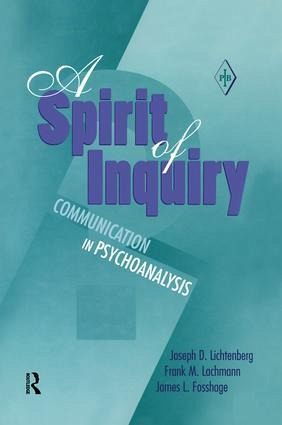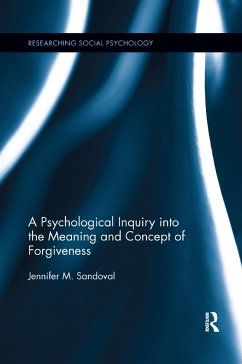
A Spirit of Inquiry
Communication in Psychoanalysis
Versandkostenfrei!
Versandfertig in 1-2 Wochen
60,99 €
inkl. MwSt.
Weitere Ausgaben:

PAYBACK Punkte
30 °P sammeln!
Thoroughly grounded in contemporary developmental research, A Spirit of Inquiry: Communication in Psychoanalysis explores the ecological niche of the infant-caregiver dyad and examines the evolutionary leap that permits communication to take place concurrently in verbal an nonverbal modes. Via the uniquely human capacity for speech, the authors hold, intercommunication deepens into a continuous process of listening to, sensing into, and deciphering motivation-driven messages. The analytic exchange is unique owing to a broad communicative repertoire that encompasses all the permutations of day-...
Thoroughly grounded in contemporary developmental research, A Spirit of Inquiry: Communication in Psychoanalysis explores the ecological niche of the infant-caregiver dyad and examines the evolutionary leap that permits communication to take place concurrently in verbal an nonverbal modes. Via the uniquely human capacity for speech, the authors hold, intercommunication deepens into a continuous process of listening to, sensing into, and deciphering motivation-driven messages. The analytic exchange is unique owing to a broad communicative repertoire that encompasses all the permutations of day-to-day exchanges. It is the spirit of inquiry that endows such communicative moments with an overarching sense of purpose and thereby permits analysis to become an intimate relationship decisively unlike any other. In elucidating the special character of this relationship, the authors refine their understanding of motivational systems theory by showing how exploration, previously conceptualized as a discrete motivational system, simultaneously infuses all the motivational systems with an integrative dynamic that tends to a cohesive sense of self. Of equal note is their discerning use of contemporary attachment reseach, which provides convincing evidence of the link between crucial relationships and communication. Replete with detailed case studies that illustrate both the context and nature of specific analytic inquiries, A Spirit of Inquiry presents a novel perspective, sustained by empirical research, for integrating the various communicative modalities that arise in any psychoanalytic treatment. The result is a deepened understanding of subjectivity and intersubjectivity in analytic relationships. Indeed, the book is a compelling brief for the claim that subjectivity and intersubjectivity, in their full complexity, can only be understood through clinically relevant and scientifically credible theories of motivation and communication.














